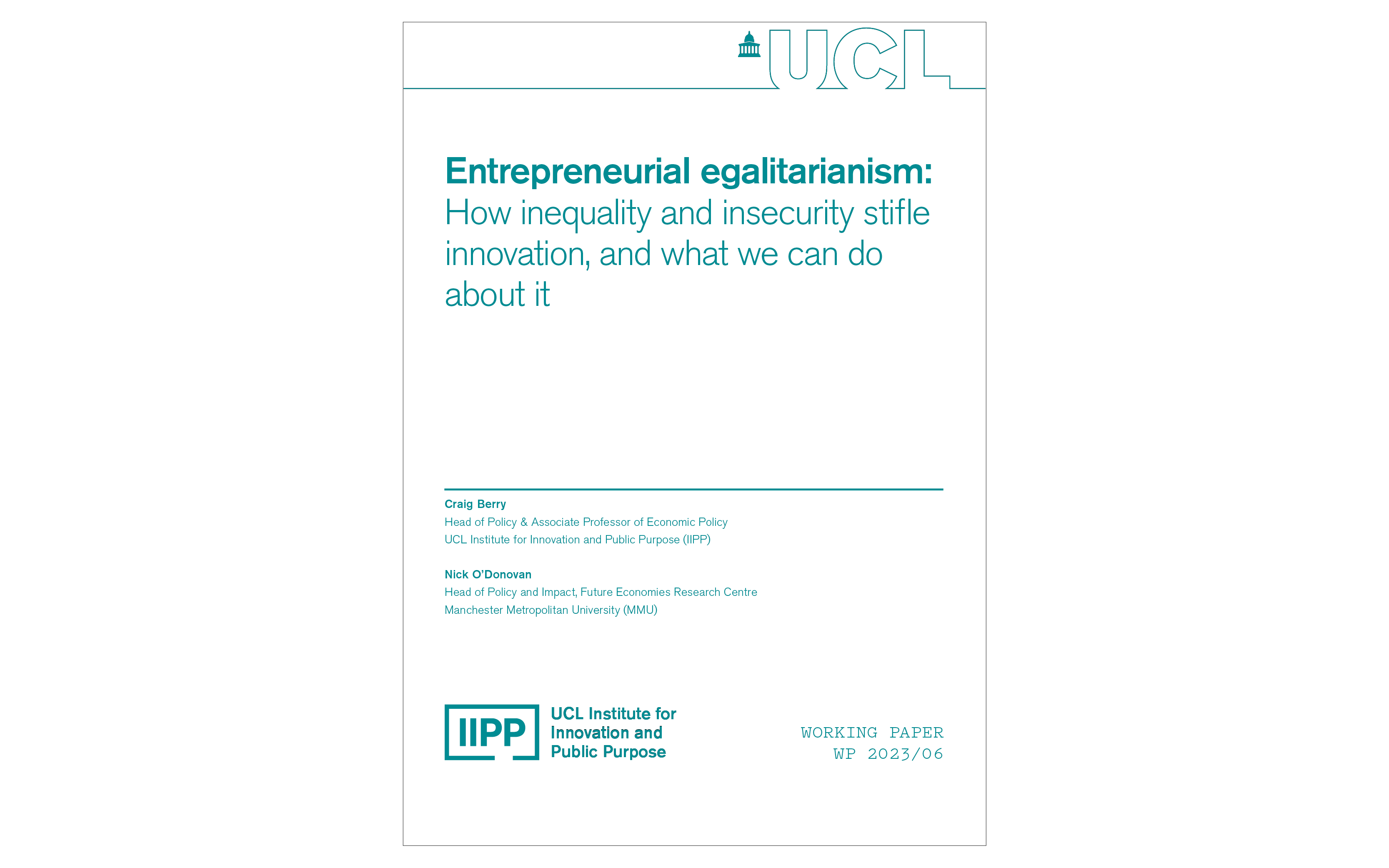Entrepreneurial egalitarianism: How inequality and insecurity stifle innovation
Authored by Dr Craig Berry and Dr Nick O’Donovan

27 April 2023
UCL Institute for Innovation and Public Purpose (IIPP) Working Paper Series: IIPP WP 2023-06
Authors:
- Dr Craig Berry | Head of Policy & Associate Professor of Economic Policy | UCL Institute for Innovation and Public Purpose (IIPP)
- Dr Nick O’Donovan | Head of Policy and Impact, Future Economies Research Centre | Manchester Metropolitan University (MMU)
Reference:
Berry, C. and O'Donovan N. (2023) Entrepreneurial egalitarianism: How inequality and insecurity stifle innovation, and what we can do. UCL Institute for Innovation and Public Purpose, Working Paper Series (IIPP WP 2023-06). Available at: https://www.ucl.ac.uk/bartlett/public-purpose/wp2023-06.
Abstract:
Despite recent advances in our understanding of how innovation happens – for example, recognising the role of the state in fuelling private sector innovation, and of user demand in enabling the generation and dissemination of innovation – the assumption that inequality somehow enables innovation remains widespread. This paper builds upon empirical evidence that more equal societies tend to be more innovative by exploring how inequality and insecurity can inhibit innovative activity at the individual level, both directly and indirectly, by diminishing the resources and capabilities which enable innovation, and disincentivising risktaking and entrepreneurialism. The paper also outlines an ‘entrepreneurial egalitarianism’ policy agenda, exploring how social and economic policies based on egalitarian values can support innovation, focusing in particular on a contributory social security system with income guarantees that supports entrepreneurial risk-taking, an expansive conception of universal basic services, a widening of access to capital, and the potential for institutions such as trade unions to facilitate innovation.
 Close
Close

